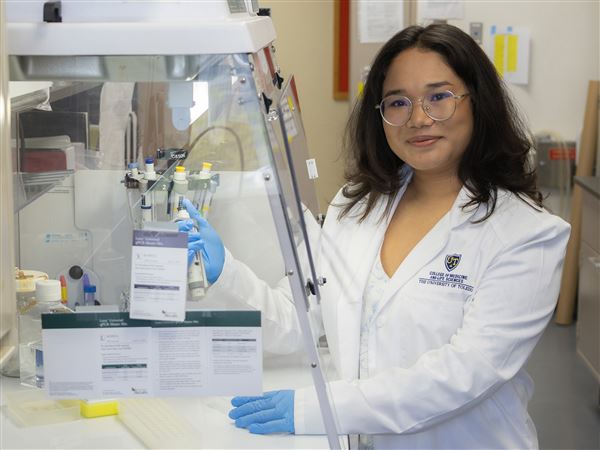
Researchers at the University of Cambridge have introduced a groundbreaking approach to combat pancreatic cancer, often referred to as a “silent killer” due to its late diagnosis and poor prognosis. This innovative method aims to enhance early detection and treatment, potentially saving thousands of lives.
Pancreatic cancer is notorious for its aggressive nature and low survival rates. According to the National Health Service (NHS), it accounts for around 5% of all cancer cases in the United Kingdom, with a five-year survival rate of just 10%. The new strategy developed by the Cambridge team focuses on identifying specific biomarkers that could signal the presence of the disease at an earlier stage.
Innovative Biomarker Discovery
The research team, led by Dr. Sarah Jones, has identified unique protein signatures in blood samples from patients diagnosed with pancreatic cancer. These biomarkers could serve as a crucial tool in developing a simple blood test that would facilitate earlier diagnosis. “Our findings could revolutionize how we approach pancreatic cancer,” Dr. Jones said during a press briefing in March 2024.
The potential impact of early detection is immense. Early-stage pancreatic cancer is significantly more treatable, with patients having a much better outlook compared to those diagnosed at later stages. The team’s research suggests that implementing this blood test in routine screenings could lead to a dramatic increase in early diagnoses, which is critical given that more than 80% of cases are diagnosed in advanced stages.
Collaborative Efforts and Future Directions
The study is part of a broader collaboration involving several organizations, including the NHS, which is actively seeking to improve cancer care. The research has garnered attention not only for its scientific merit but also for its potential economic implications. Effective early detection could lessen the financial burden on healthcare systems by reducing the costs associated with late-stage treatments.
In addition to blood tests, the research team is exploring how lifestyle and genetic factors might contribute to pancreatic cancer risk. This multifaceted approach aims to provide comprehensive strategies for prevention and treatment.
The implications of this research extend beyond the UK. A similar initiative is being developed in the United States, where researchers are adapting the Cambridge findings to enhance their early detection capabilities. Collaborative efforts across borders signify a collective commitment to tackle this challenging disease.
As the team at the University of Cambridge continues to refine their findings, the hope is that this new method will lead to a paradigm shift in how pancreatic cancer is diagnosed and treated. With ongoing trials and potential clinical applications on the horizon, the fight against this formidable disease may soon take a significant turn for the better.







